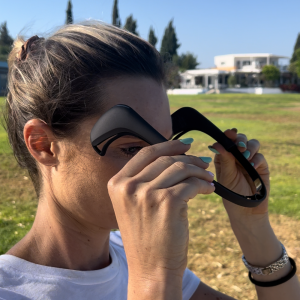
As cities continue to grow, the need for sustainable urban planning becomes ever more critical. The GreenInCities project, a cutting-edge initiative aimed at fostering sustainable and resilient urban environments, brings together experts, local governments, and communities to work towards more liveable, green, and inclusive cities for both humans and non-humans.
A vital component of this project is the research conducted by NeuroLanscape, a key partner responsible for the Neurourbanism Assessment, in Koren Panovec (Nova Gorica, Slovienia) and Malmi (Helsinki, Finland). This study seeks to understand the effects of nature-based interventions on urban mental well-being, particularly in these two GreenInCities pilot areas. By exploring the interaction between urban environments and mental health, this research aims to provide valuable insights to shape future urban regeneration projects, contributing to the creation of healthier, more resilient cities.
What is the Neurourbanism Assessment?
Neurourbanism Assessment is a mental health evaluation that utilizes portable, user-friendly brain imaging tools to measure the real-life effects of environmental exposure on well-being, bringing neuroscience into neurodesign. The study to be conducted in the two pilot areas will investigate how urban green spaces, public parks, and nature-based solutions (NbS) can positively influence cognitive function, reduce stress, and foster social cohesion. To do so, NeuroLanscape will assess participants' neural and physiological activity before and after a nature-based intervention is introduced to the pilot area. The findings will provide essential data to inform the design of future urban spaces that prioritise mental well-being and ecological sustainability.
Why is this assessment so important?
This assessment is crucial for several reasons. First, it will offer data on how urban green spaces and NbS contribute to mental well-being in cities. Second, it will help define best practices for creating more inclusive and resilient urban environments. By engaging local residents directly in the research, the study ensures that the voices of the community are central to future urban regeneration efforts. With Nova Gorica and Helsinki being Leader Cities in the GreenInCities project, the outcomes of this study will have far-reaching implications for urban planning across Europe.
Call for Participants: Help Shape the Future of Urban Regeneration
NeuroLanscape is now calling for local residents in Koren Panovec, Nova Gorica (Slovenia) and Malmi, Helsinki (Finland) to participate in the Neurourbanism Assessment. The study is seeking 50 participants in each neighbourhood to help explore the effects of nature-based interventions on mental health and well-being.
Eligibility Criteria:
- Age: 18-65 years old
- Right-handed with normal or corrected to normal vision
- Location: Must live near the development area or visit the area often
What Participants Will Do:
Participants will receive a safe, easy-to-wear headset that connects to their phone to track their brain’s electrical activity and heart rate during visits to local green spaces and at home. The team will train participants on how to use the device so they can record their brain’s electrical activity and heart rate on their own during sessions over a week’s time. Participants will need to record for 20 minutes in a pre-assigned park, 3 additional times in their home, and report their experience using an app. They will also complete a brief questionnaire about their lifestyle and wellbeing.
Key Dates for Participation:
- Panovec, Nova Gorica: 23 April – 31 May 2025
- Malmi, Helsinki: 4 April – 30 August 2025
How You Can Help
If you live in Panovec or Malmi and meet the eligibility criteria, or if you can help share this call within your community, your involvement will make a real difference.
For more information or to register as a participant, please visit this link or contact neuro@neurolandscape.org.
